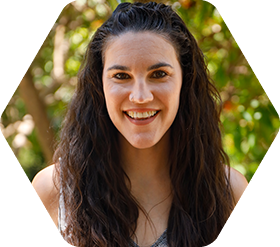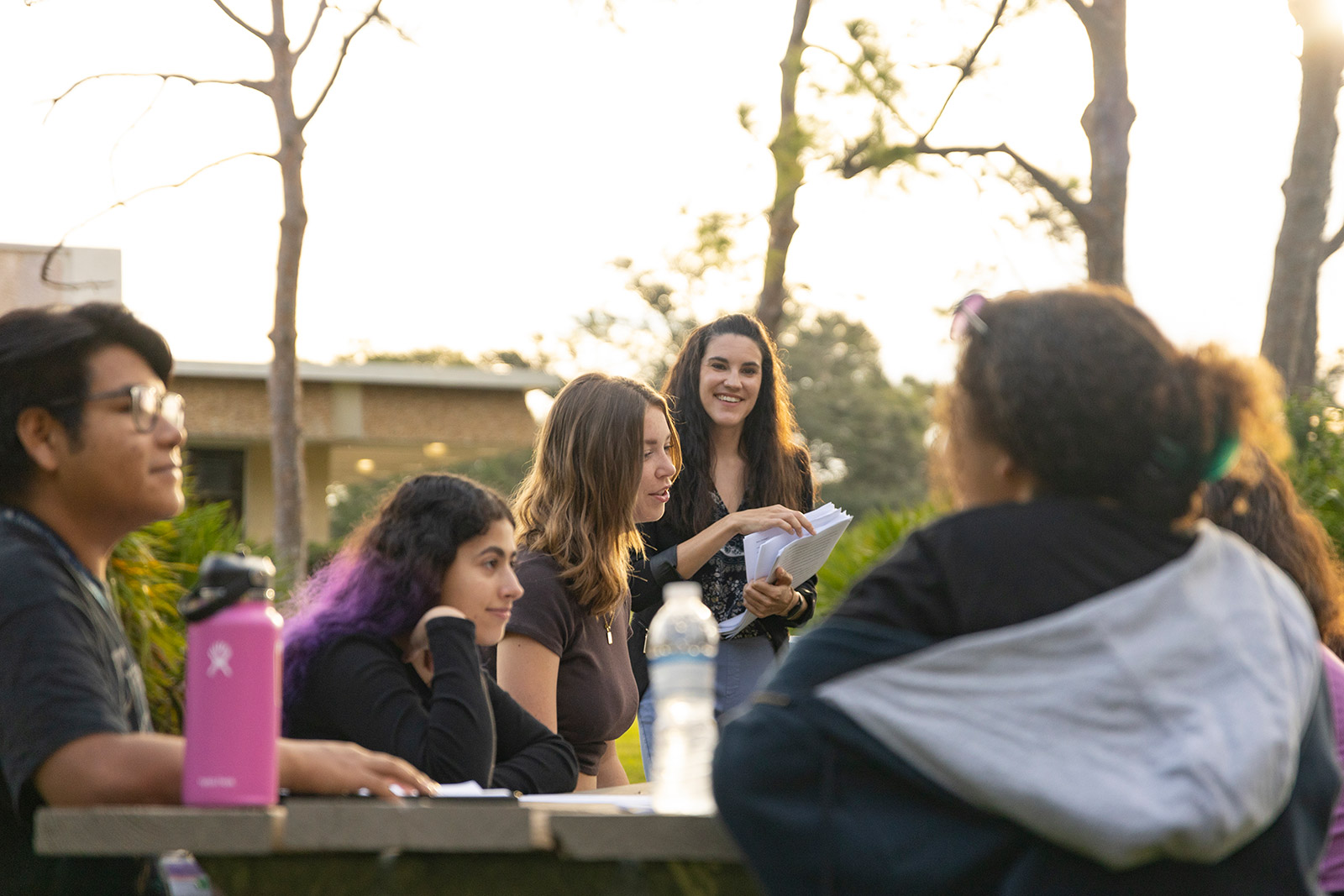Sarah Lyle had just received her Ph.D. in health and developmental psychology from the University of Georgia when she landed a position as a tenure-track assistant professor of psychology at Eckerd College. Less than two months later, Hurricane Ian also arrived in Florida.
“My partner, two pups and I evacuated to my aunt and uncle’s house in Lakeland,” Lyle says. “Although the weather might have been worse there than in St. Pete, we were happy to spend some time with family.”
Back at Eckerd, Lyle teaches courses in health psychology, developmental psychology and research methods, and she will direct the College’s new Health and Well-Being Lab, which starts in the Spring Semester. “Essentially we will be working with students to design research projects and promote health and well-being,” she says. “I have a primary interest in sleep and how it affects college students and community members.”

Assistant Professor of Psychology Sarah Lyle, Ph.D.
Each Eckerd psychology faculty member will be or is currently leading a research lab where the focus is on different questions related to psychology, Lyle explains.
“In addition to my Health and Well-Being Lab, there is Lauren Highfill’s Comparative Psychology Lab, which will study questions related to comparative psychology; Stephanie Mallinas’s Social Cognition and Intergroup Processes Lab, which will study questions related to social psychology; Jessica Leffers’s Categorization and Reasoning (CAR) Lab, which will study questions related to cognitive psychology; and Sara Hofmann’s Clinical Processes Lab, which will study questions related to clinical psychology.”
Raised in Ohio, Lyle received her bachelor’s degree in psychology from Ohio Northern University. She took two years off to work with City Year, an AmeriCorps program, as a teacher’s assistant for at-risk students, and then received her master’s degree from Nova Southeastern University. “I had a professor at my undergraduate institution who taught experimental psychology, and I really loved the class,” she says. “I started thinking this is something I might want to do with my life.”
When asked about her research and teaching interests, Lyle is quick to point out the importance of recognizing and trying to treat stress in present-day America, given stressors such as the pandemic, the war in Eastern Europe and hurricanes.
“It’s incredibly important,” she says. “I teach a health psychology class that highlights recent—and not so recent—research linking stress to mental and physical health. In this class, we discuss the physiological changes that short-term stressors cause in our body and how, over time, these stressors can lead to long-lasting biological changes that put people at risk for many of the common chronic diseases of aging such as heart disease, diabetes and cancer.
“In fact, there is a large and growing body of research to suggest that stress is actually a stronger predictor of someone’s long-term health than health behaviors like diet and exercise.”
But now, she adds, the skies are clear and the future is bright. “I’m super excited to be here,” she says. “I can only imagine the lifetime of learning that can happen here.”













